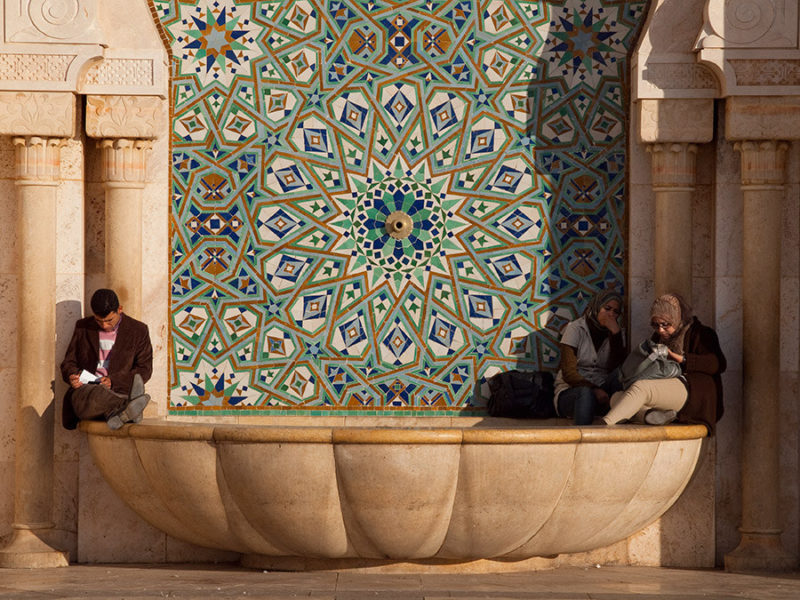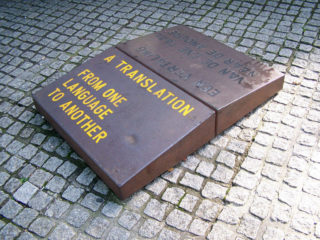From Casey Henry:
Moderator Adam Shatz framed the night's discussion by bringing up what he thought was a central component of Fouad's writing: liminality. Fouad's uniqueness was not only in presenting and toying with the boundaries between cultural and linguistic identities, but investing a humor and robustness into the depictions of "liminality."
Responding to how he negotiates certain loaded identity categories, Fouad described, by way of parallel example, how he spends his time at home. In the 80% of his life he spends in domesticity, he is -- like a particle ignored in a physics experiment -- nearly non-existent, abstracted into "pure consciousness." The other 20% out in the world presented glancing and contrasting forces of presumed identity categories. Yet, these are deceptive, and one often finds themselves fumbling through a series of presumptions--and subverting these presumptions for aesthetic or political effect.
The question, and quality, of "arbitrariness," was raised by Shatz. Fouad claims that Americans can't fully appreciate "arbitrariness," as they have never lived in a tyranny, and hence experienced seemingly surreal occurrences as a product of tyrannical governments (he recounted being stopped multiple times in Kafka-esque fashion by police in Morocco for the same imagined offenses). Adam Shatz discussed this in relation to Fouad's story "Born Nowhere," about a character who realizes his birth certificate lists a town that is seemingly non-existent. Fouad gently outlined a over-arching moral in the piece relating to how, he thinks, we are better of without a nostalgia for tangible "roots," and should rather embrace a productive confusion and sense of dislocation. This sense of production dislocation was one employed fruitfully by the translator of Fouad's works, Emma Ramadan, who claimed she was able to float skillfully between the particular, in this case masculine, positions of Fouad's works by embracing her own sense of estrangement in Morocco.
Fouad's comments appeared to use his own work as evidence for the a new kind of heterogeneous, irreverent, polyglot aesthetic, used as a political and personal force.


